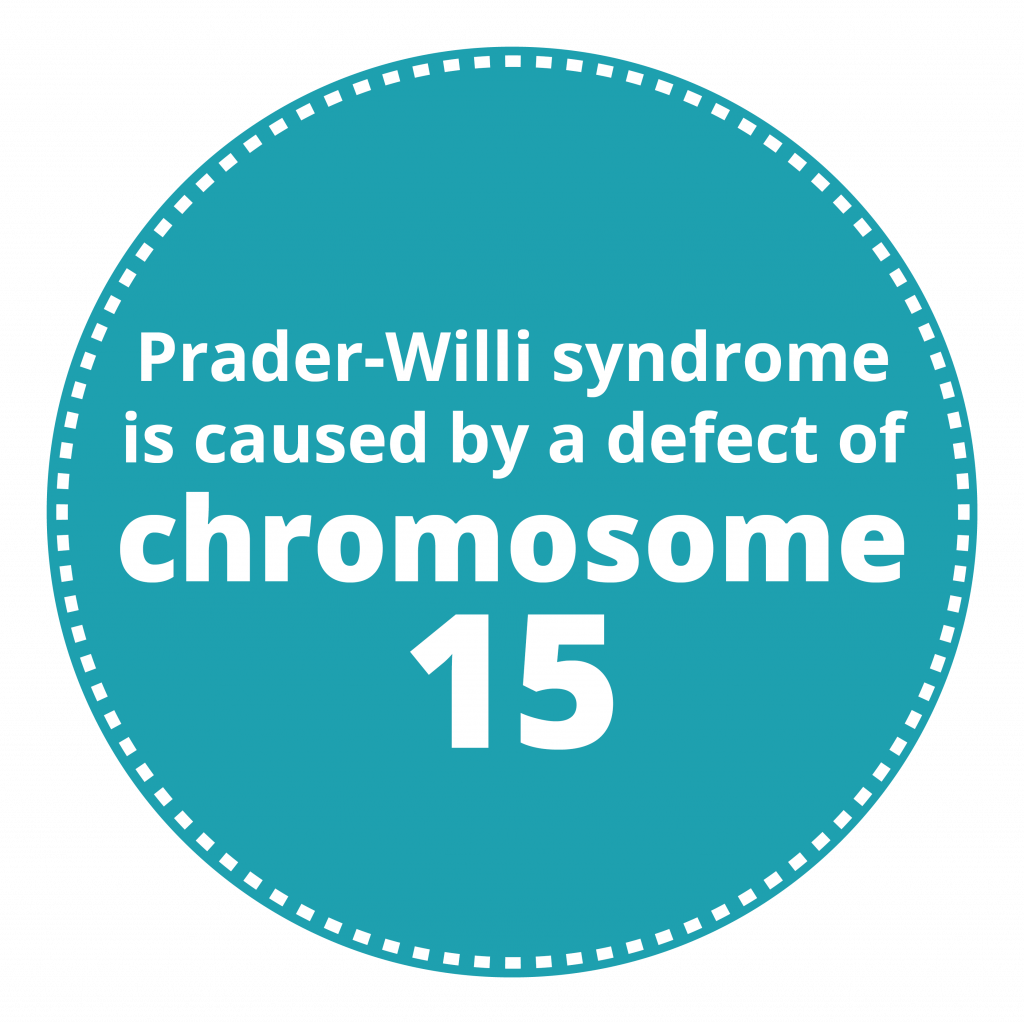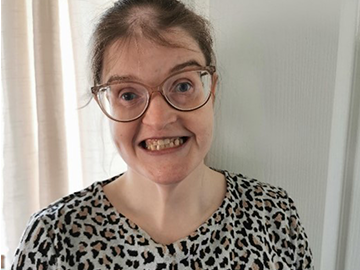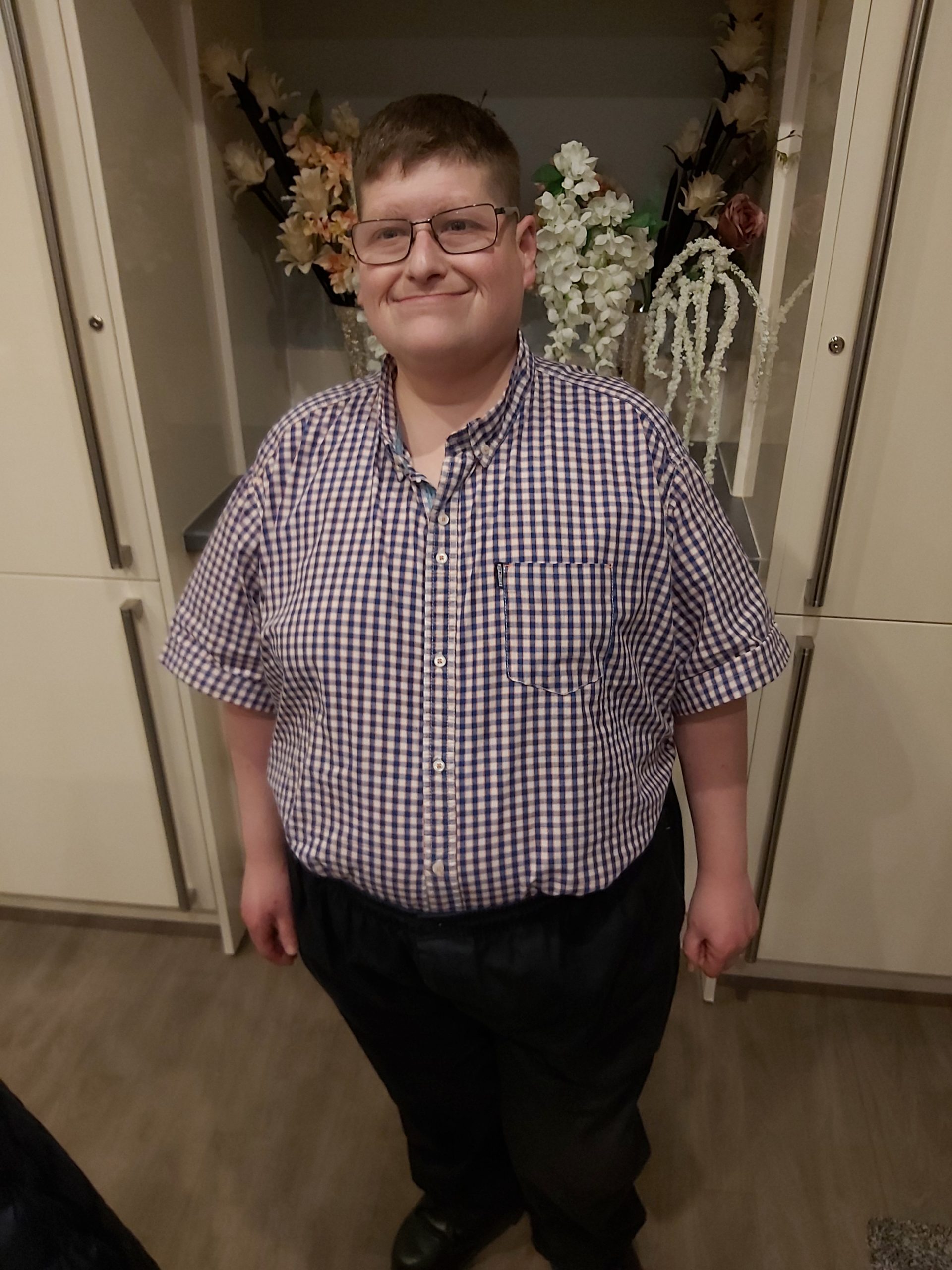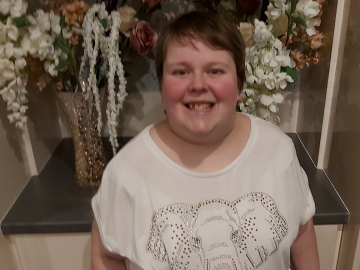What is Prader-Willi syndrome?

Prader-Willi syndrome is a very rare genetic condition affecting 1 in 22,000¹ people worldwide and there are approximately 2000¹ adults living with the condition in the UK.
The condition caused by a defect of chromosome 15. This defect affects the part of the brain in charge of managing hormones, controlling appetite and regulating emotions.
This has a significant impact on the mental, physical and behavioural well-being of people with Prader-Willi syndrome. It can lead to the development of a variety of complex needs including learning disabilities, physical symptoms and behavioural problems.
Normally diagnosed shortly after birth, it is most commonly associated with:
- Excessive appetite and overeating
- Weight gain
- A lack of muscle tone
- Delayed growth
Although there is no cure for Prader-Willi syndrome, with the right care and support in place people with the condition can lead long, healthy, fulfilling lives.
To find out more about Prader-Willi syndrome, you can read our blog, visit the Prader-Willi Syndrome Association UK (PWSA) website or visit the NHS website.

How we support people with Prader-Willi syndrome
A person living with Prader-Willi syndrome can still lead a healthy, fulfilling life when they receive the correct support from people who understand the condition.
As part of our dedication to providing tailored care and support for each person living with the syndrome, we have developed our Prader-Willi syndrome specialism. This includes our internal Prader-Willi syndrome professionals group, comprising a number of Voyage Care colleagues who drive continuous improvement in this area.
We have 13 specialist Prader-Willi syndrome services across the UK ranging from residential care homes to community and supported living services. – in banner below

We also provide specific Prader-Willi syndrome training for our staff teams. Our staff work to the highest standards of best practice, recognising that every person with the condition has their own unique qualities, interests and challenges.
To learn more about how we support people with Prader-Willi syndrome, visit our dedicated webpage.
Commitment to quality
We pride ourselves on providing great quality care for the people we support. As part of this, we ensure that our teams are kept up to date with ongoing standards for the delivery of care. We do this via our internal quality mark which our care homes and community support hubs will work towards gaining.
89% of our locations, including our Prader-Willi specialism services, are rated as either Good or Oustanding² by the Care Quality Commission.
To find out more about our commitment to quality, visit our dedicated webpage.
¹ Figure taken from PWSA.
² Data correct as of March 2024.



 More success stories
More success stories 




